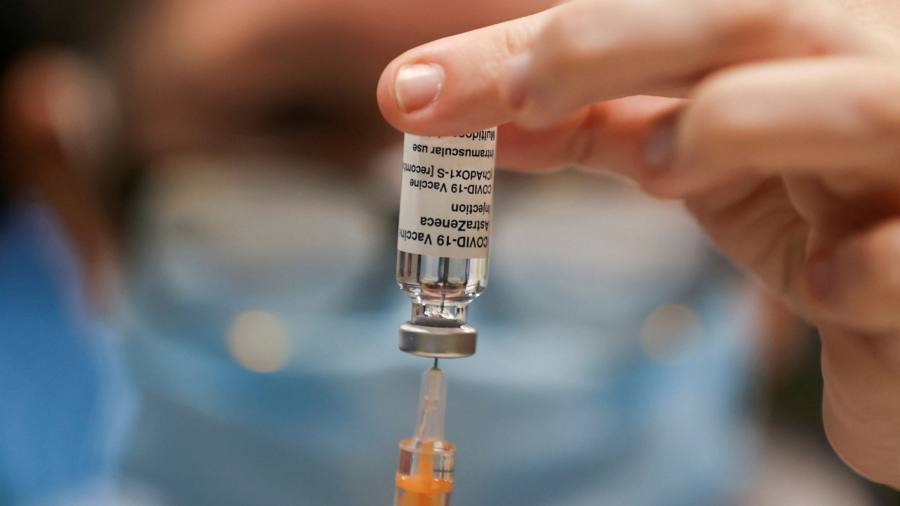[ad_1]
Chancellor Rishi Sunak has hailed the early success in Britain’s coronavirus vaccine rollout as an economic model for the future, with an emphasis on “nimble†regulation and an active role for the state in promoting innovation.
Mr Sunak’s comments are expected to be reflected in his March 3 Budget, when he will map out a post-Brexit economic plan, which will also feature the idea of greater British self-sufficiency in key areas.
Speaking at a Treasury “jobs of the future†event, Mr Sunak highlighted his belief that Britain could be “agile†in creating a regulatory framework for new industries.
Several ministers share the business view that the post-Brexit focus should be on creating a regulatory framework to allow new sectors such as data, fintech and life sciences to flourish, rather than scrapping existing EU rules.
“I think our regulatory system has proved to be more agile and nimble and much better joined-up than others perhaps around the world,†Mr Sunak said, referring to the development of the Oxford/AstraZeneca vaccine.
The chancellor’s team insisted he was not criticising the European Commission, which has struggled to roll out the EU’s vaccine programme, or making a pro-Brexit point, although some will see his comments in that light.
Addressing Sarah Gilbert, the Oxford university professor who developed the vaccine now being produced by AstraZeneca, he said a public-private partnership had helped “to fund science and research and help bring things to market, working with professors like yourself and your teamâ€.
The UK government has backed promising homegrown vaccine candidates to the tune of £84m. Oxford/AstraZeneca also received help in kind as work was done to refine the manufacturing process for their vaccine and then to produce it at large volume.
The vaccine was approved for use by Britain’s medicines regulator on December 30, a month before it was approved for use by its EU equivalent.Â
Prof Gilbert, however, said the government could do better. “I can see some gaps as well,†she added. “There hadn’t been the investment we would have liked in vaccine manufacturing and vaccine testing in the UK.â€
Mr Sunak’s post-Brexit economic strategy is starting to take shape. A focus on “nimble†regulation will be accompanied by the government putting money into new industries and individual companies.
A £1bn Future Fund set up by Mr Sunak to provide emergency debt funding for start-ups during the Covid-19 pandemic is now seeing some investments convert into equity. For example, the government now owns a minority stake in a next-generation toilet manufacturer in Basildon.
The government also has a stake in the OneWeb satellite operator, intended to deliver broadband to remote areas, as part of a wider drive by ministers to foster British self-sufficiency in key sectors.
Boris Johnson has viewed the pandemic as a painful reminder of Britain’s dependence on overseas suppliers for vital products such as personal protective equipment, and taken steps to reduce it.
Downing Street said that 70 per cent of PPE used in the UK was now produced in Britain, compared with 1 per cent at the start of the pandemic.
Mr Johnson has also discussed with US president Joe Biden the idea of western governments collaborating to reduce their reliance on Chinese telecoms equipment maker Huawei by nurturing domestic suppliers.
[ad_2]
Source link





